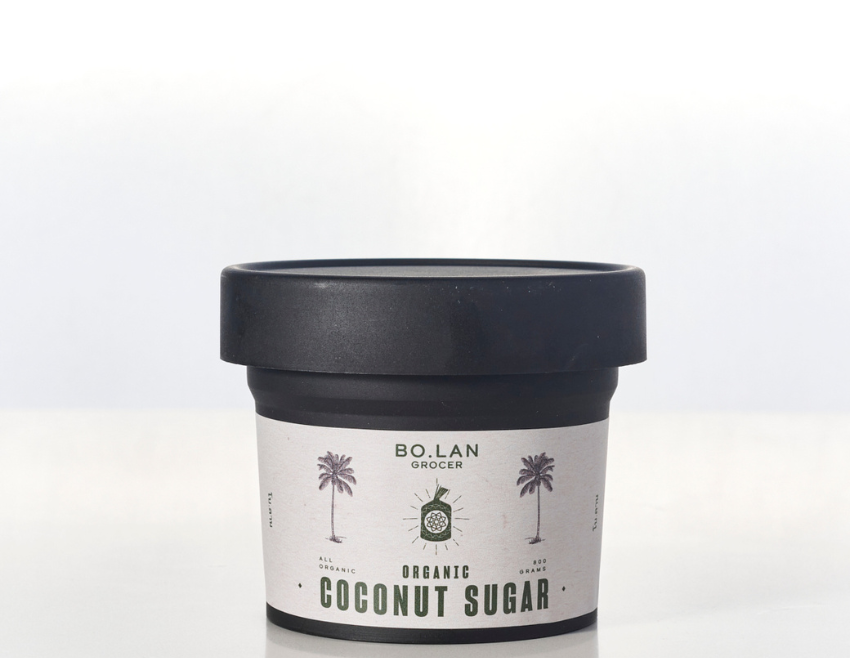COCONUT PALM SUGAR
Coconut palm sugar is an essential ingredient in Thai Cuisine and it’s not limited to kanom (dessert), sugar plays an integral role in savory dishes helping to achieve that wonderful balance.
Traditionally labour intensive to make, Bo.lan is honored to have access to the plantation cultivated by Aunty Jii and Aunty Tum. Introduced to us by professor Wanida of the institute of nutrition who was advising the two women on how to produce the sugar according to traditional methods but advising on how to make the process safer and cleaner for themselves and the environment.
Bo.lan coconut palm sugar requires one of the sisters to climb each of their 80+ tree’s twice daily to collect the nectar and at the same time shaving the blossom so that it won’t dry up for their next climb. if the nectar is left for to long it will ferment rendering it useless, however traditional Thai wisdom uses “Payom”woodshed and the natural enzymes in the wood prevent or slow the fermentation, instead of using harsh chemicals.
The nectar is cooked over fire in large woks reducing slowly until the right amount of “bubbles” is achieved, it’s then strained through muslin cloth and aerated so that the liquid crystalises and becomes solid. It’s then left to cool in moulds before being sent to Bo.lan.
Due to the special location of the farm, in the brackish waters the sugar has distinctly savory quality to it.

